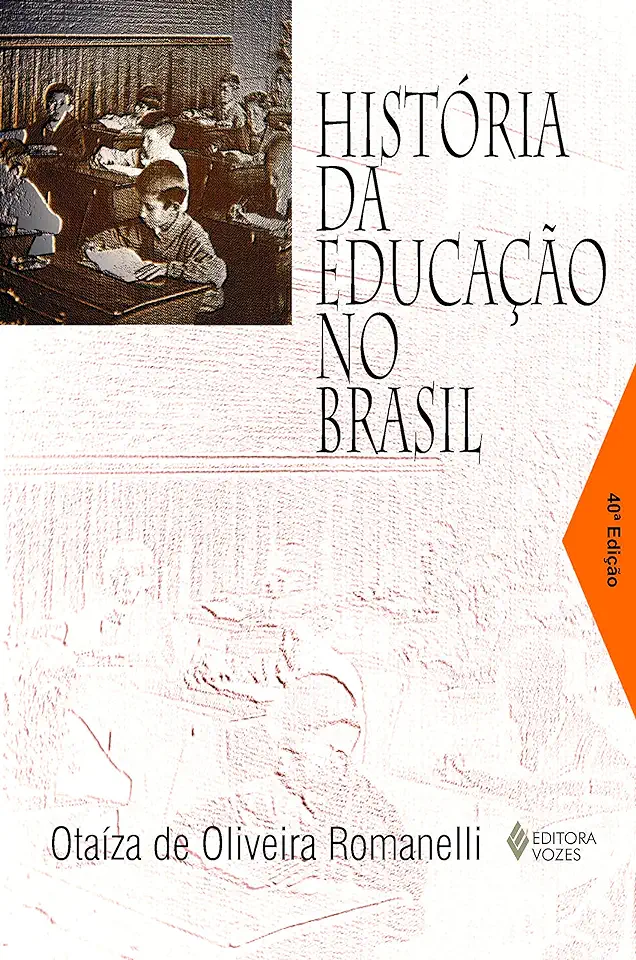
History of Education in Brazil - Otaíza de Oliveira Romanelli
History of Education in Brazil
Introduction
Brazil is a country with a rich and diverse history, and its education system is no exception. From the early days of colonization to the present day, Brazilian education has been shaped by a variety of factors, including political, economic, and social changes.
In this book, Otaíza de Oliveira Romanelli provides a comprehensive overview of the history of education in Brazil. She begins by discussing the educational policies and practices of the Portuguese colonial government, and then traces the development of education in Brazil after independence. Romanelli also examines the role of education in Brazilian society, and the challenges and opportunities that the country's education system faces today.
The Colonial Period
The Portuguese colonial government established the first schools in Brazil in the 16th century. These schools were primarily for the education of the children of Portuguese settlers, and they focused on religious instruction and basic literacy. In the 18th century, the Portuguese government began to expand access to education, and schools were established in many towns and cities throughout Brazil. However, education was still limited to a small minority of the population, and most Brazilians were illiterate.
The Post-Independence Period
After Brazil gained independence from Portugal in 1822, the new government made education a priority. The first constitution of Brazil, adopted in 1824, mandated the establishment of a public school system. However, progress in implementing this mandate was slow, and it was not until the late 19th century that public education began to expand significantly.
In the 20th century, the Brazilian government continued to expand access to education, and the country's literacy rate increased dramatically. However, the quality of education remained a challenge, and many Brazilians still did not have access to quality education.
The Present Day
Today, Brazil faces a number of challenges in its education system. These challenges include:
- A high dropout rate: Many Brazilian students drop out of school before completing their education. This is due to a variety of factors, including poverty, lack of access to quality education, and the need to work to support their families.
- A lack of qualified teachers: There is a shortage of qualified teachers in Brazil, especially in rural areas. This is due to a number of factors, including low salaries and a lack of training opportunities.
- A need for more resources: The Brazilian government needs to invest more resources in education in order to improve the quality of education and to expand access to education for all Brazilians.
Despite these challenges, there have been a number of positive developments in Brazilian education in recent years. These developments include:
- An increase in the number of students attending school: The number of students attending school in Brazil has increased significantly in recent years. This is due to a number of factors, including the expansion of public education and the increased awareness of the importance of education.
- An improvement in the quality of education: The quality of education in Brazil has also improved in recent years. This is due to a number of factors, including the implementation of new curriculum standards and the increased use of technology in the classroom.
- A greater emphasis on equity: The Brazilian government has placed a greater emphasis on equity in education in recent years. This is reflected in the increased funding for public education and the development of programs to support students from disadvantaged backgrounds.
Conclusion
The history of education in Brazil is a complex and fascinating one. It is a story of progress and setbacks, of challenges and opportunities. Despite the challenges that the Brazilian education system faces, there have been a number of positive developments in recent years. These developments give hope for the future of education in Brazil.
Why You Should Buy This Book
If you are interested in learning more about the history of education in Brazil, then this book is for you. Otaíza de Oliveira Romanelli provides a comprehensive overview of the subject, and she does so in a clear and engaging way. This book is a valuable resource for anyone who wants to understand the development of education in Brazil.
Here are a few reasons why you should buy this book:
- It is comprehensive: This book covers the history of education in Brazil from the colonial period to the present day.
- It is well-researched: Romanelli has drawn on a wide range of sources to write this book, and she provides extensive documentation for her claims.
- It is clearly written: Romanelli writes in a clear and engaging style, making this book accessible to a wide range of readers.
- It is affordable: This book is available at a reasonable price, making it a great value for the money.
If you are interested in learning more about the history of education in Brazil, then I highly recommend this book. It is a valuable resource for anyone who wants to understand the development of education in this important country.